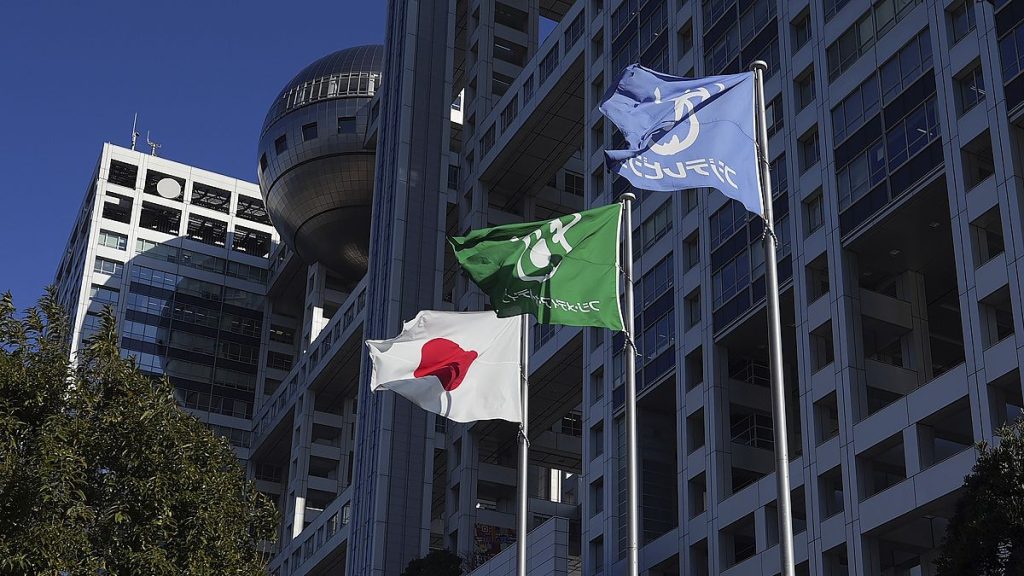The Japanese entertainment industry is reeling from yet another scandal, this time involving former boy band idol and television host Masahiro Nakai and a major broadcasting network, Fuji Television. Allegations of a sexual assault at a 2023 party, reportedly arranged by a Fuji TV staff member, have led to a mass exodus of advertisers from the network. Major sponsors, including automotive giants Toyota and Nissan, cosmetics company Shiseido, and retail giant Seven & I Holding Co., among others, have pulled their advertisements from Fuji TV, citing concerns over the network’s handling of the situation and its perceived attempts to cover up the scandal. This advertiser boycott has dealt a significant financial blow to the network and underscores the growing public distrust in the Japanese entertainment industry.
The scandal centers around Masahiro Nakai, a former member of the popular boy band SMAP. The weekly magazine Shukan Bunshun reported on the alleged sexual assault and a subsequent 90 million yen settlement between Nakai and the alleged victim. While Nakai acknowledged a settlement related to a “trouble,” he vehemently denied the use of any violence. The situation escalated dramatically following a press conference by Fuji TV president Koichi Minato, which was widely criticized for its lack of transparency. Minato admitted that the network had been aware of the incident for approximately six months before the story broke publicly, further fueling accusations of a cover-up.
Adding to the controversy, Shukan Bunshun published further allegations, citing an unnamed female Fuji announcer who claimed that the senior company official linked to the 2023 party had organized similar gatherings for Nakai in the past. This revelation intensified public scrutiny and raised questions about a potential pattern of inappropriate behavior within the network. The pressure mounted on Fuji TV when one of its largest shareholders, Rising Sun Management (an affiliate of Dalton Investment), publicly criticized the company’s handling of the situation and demanded a thorough investigation and appropriate action.
This scandal comes on the heels of another major controversy that rocked the Japanese entertainment industry in 2023. The now-defunct talent agency Johnny & Associates, which managed SMAP and numerous other popular boy bands, admitted to widespread sexual abuse of young boys and men by its late founder, Johnny Kitagawa. The revelations sent shockwaves through the industry and prompted numerous victims to come forward with their stories of abuse.
The accusations against Kitagawa, who died in 2019, painted a disturbing picture of systemic abuse within the agency. At least a dozen men publicly accused Kitagawa of sexually assaulting them as teenagers, including Kauan Okamoto, a former member of Johnny’s Jr. backup boys’ group. Okamoto, a Japanese-Brazilian singer-songwriter, detailed multiple instances of sexual assault by Kitagawa over a four-year period, beginning in 2012. These revelations brought the issue of sexual exploitation in the entertainment industry to the forefront and sparked calls for greater accountability and protection for young performers.
The combined impact of the Johnny Kitagawa scandal and the current allegations against Nakai and Fuji TV has deeply tarnished the image of the Japanese entertainment industry. The back-to-back scandals have highlighted a culture of silence and complicity that allowed such abuse to persist for decades. The advertiser boycott of Fuji TV demonstrates a growing public intolerance for such behavior and a demand for transparency and accountability from media organizations. The industry now faces the daunting task of rebuilding trust and implementing meaningful reforms to protect vulnerable individuals and prevent future abuse. The path to recovery will be long and challenging, requiring a concerted effort from all stakeholders to address the systemic issues that have plagued the industry for so long.














